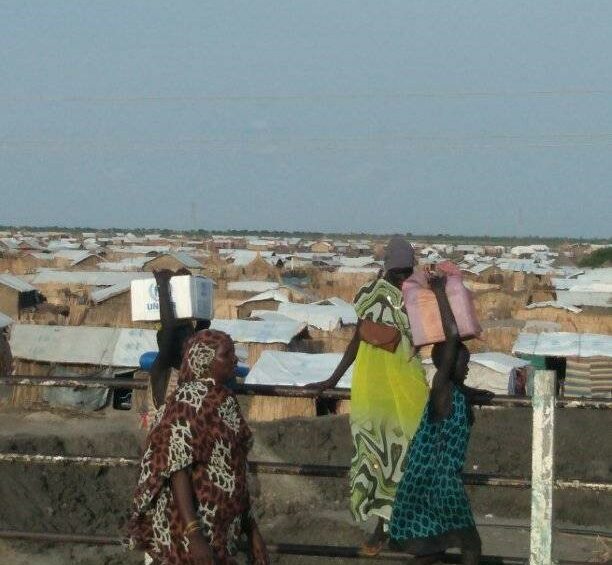You are here: Home | Humanitarian | News | Regional | South Sudanese refugees decry being blockaded with little aid in Sudan

Alagaya Camp in Sudan's White Nile State. (-)
South Sudanese refugees in Sudan’s White Nile State said on Monday they are unable to return home as the warring factions in Sudan have blockaded them in camps with insufficient humanitarian aid.
The refugees in Kashafa and Redis 2 refugee camps call on the South Sudan government and relief agencies to facilitate their return to South Sudan amid a dire situation as the months of war drags on.
Abdullah Kak, a chief at the White Nile camps said his people have been suffering due to shortage of vital humanitarian needs including food, medicines and water.
He said the deteriorating situation partly resulted from a drastic cut in food ratios to thousands of South Sudanese nationals in 10 camps within As-Salam and Al Jebelen localities.
According to Kak, the refugees have also been restricted from moving outside the camps, denying them a chance to maneuver their way back to South Sudan.
“It is true, the refugees are really suffering, especially with regard to food items. We used to be given enough food and other basic needs but currently, they have cut the ration to 50 percent,” Kak told Eye Radio.
“This is the biggest suffering we are going through here in Kashafa refugee camp. The other thing is that people are not allowed to cross the river towards Jebellein whether from the Eastern or the Western camps.”
“For you to reach Jebelen, it needs a lot of effort. As refugees, we are suffering a lot regarding hospitals, lack of medicines, food and water. Currently the situation has changed a bit depending on the volatile situation in Sudan.”
Tahani Ajak, a resident of Redis 2 Refugee Camp said many of the South Sudanese wish to return home due to the unbearable situation.
But she said they have not been able to do so due to closed transport routes.
“The situation is really very tough, people can’t get treatment, and those who want to come could not. Many people want to go back to South Sudan could not do so.”
“The health situation has worsened. People could not get treatment in addition to the delay of food distribution. Even the one we just received, is not enough or up to standard.”
Ajak calls for the opening of safe transport routes to enable them to return to home.
“We hope that the authorities and donors will look into this especially in opening the transport routes to allow those who want to return to South Sudanese to go back.”
According to latest media reports, White Nile still represents one of the most underserved and neglected regions in the humanitarian responses in Sudan.
According to the UN humanitarian agency, more than 500,000 people have fled Sudan to South Sudan since the conflict erupted between the Sudanese Armed Force (SAF) and paramilitary Rapid Support Force (RSF) on April 15, 2023.
During the first weeks on the war in Khartoum, when nations across the world raced to evacuate their citizens out of Sudan, the South Sudan government said it had no plans to evacuate South Sudanese citizens in Sudan because the population is too big.
Support Eye Radio, the first independent radio broadcaster of news, information & entertainment in South Sudan.
Make a monthly or a one off contribution.
Copyright 2024. All rights reserved. Eye Radio is a product of Eye Media Limited.